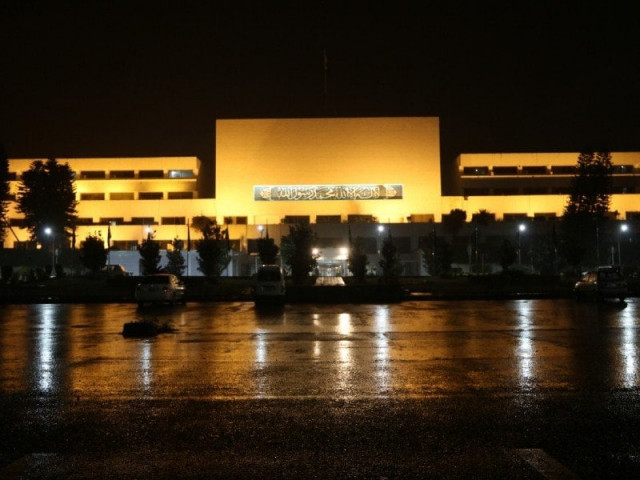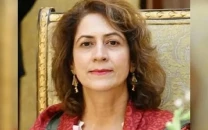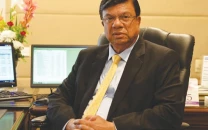Debt-to-GDP ratio stands at 87%, NA told
Parliamentary secretary says govt to bring ratio down to 81% in 3 years

Pakistan’s debt-to-GDP ratio currently stands at 87%, but the government is trying to bring it down to 81% in the next three years, Parliamentary Secretary for Finance Zain Qureshi told the National Assembly on Monday.
The house was also informed that the government had cut its expenditures through various austerity measures, while the growth in external debt this year was the lowest in six years.
Qureshi presented the debt figures in the house while responding to a question from the lawmakers that the government was borrowing more than the ratio of the gross domestic product (GDP). Qureshi said that the ratio was 63.8% in 2012-13 but it went up to 86.1% in 2018-19.
“In 2020-21 the debt-to-GDP ratio is 87%,” the parliamentary secretary said. “We will bring it down to 81%,” he added. “The government has cut government spending through austerity measures.”
Industries Minister Hammad Azhar said that this year, the growth rate of the external debt was the lowest in six years. “If imports increase by 30 to 40% and exports decrease, debt will increase in proportion to GDP,” he added.
Parliamentary Secretary for Planning Ministry Kanwal Shauzab said that the ordinance regarding the China-Pakistan Economic Corridor (CPEC) Authority has expired, adding that following the expiry of the ordinances, salaries of its chairman and the chief executive officer were not being paid.
Maulana Jamaldini raised the question about the interest system in the country. “We were thinking that there would be a war on interest in the state of Madina,” he said, asking whether the State Bank of Pakistan (SBP) was still continuing interest rate system.
Speaker Asad Qaiser said that the house had passed a bill against interest last Tuesday. The lawmaker then asked when the interest-based system would end. Zain Qureshi said that he could not say when the interest system would end but added efforts were afoot to eliminate interest.
Maulana Abdul Akbar Chitrali said that the SBP was responsible for the continuation of the interest-based system. Maulana Abdul Shakoor said that on the one hand the government was talking about the state of Madina but on the other, the government lawyer spoke in favour of interest in a court.
However, the speaker told the lawmaker to speak with evidence, stressing that nothing of that sort had happened. Qureshi said that a sub-committee was formed to consider elimination of interest. The speaker said that input from scholars should be invited on this issue.
Responding to another question, Hamad Azhar said wheat would be grown on more area than the last year. He admitted that there was a gap in demand and supply, therefore, wheat was being imported. “Wheat imports will keep prices stable,” he said.
In a written reply during the session, Finance Minister Hafeez Sheikh gave details of the petroleum development levy collection in the last three years. The reply said Rs679 billion revenue was collected in three years under the PDL.



















COMMENTS
Comments are moderated and generally will be posted if they are on-topic and not abusive.
For more information, please see our Comments FAQ